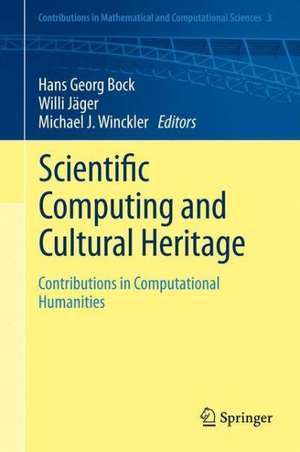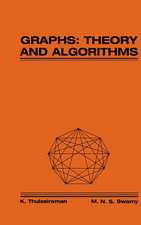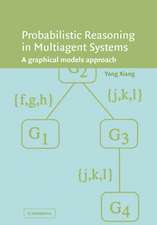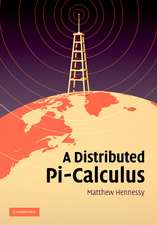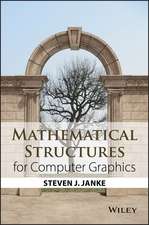Scientific Computing and Cultural Heritage: Contributions in Computational Humanities: Contributions in Mathematical and Computational Sciences, cartea 3
Editat de Hans Georg Bock, Willi Jäger, Michael J. Winckleren Limba Engleză Hardback – 23 oct 2012
The papers published here are grouped into three broad categories that cover mathematical and computational methods, research developments in information systems, and a detailed portrayal of ongoing work on documenting, restoring and presenting cultural monuments including the temples in Pompeii and the Banteay Chhmar temples of the Angkorian period in present-day Cambodia. Originally presented at a research workshop in Heidelberg, Germany, they reflect the rapidly developing identity of computational humanities as an interdisciplinary field in its own right, as well as demonstrating the breadth of perspectives in this young and vibrant research area.
| Toate formatele și edițiile | Preț | Express |
|---|---|---|
| Paperback (1) | 622.52 lei 6-8 săpt. | |
| Springer Berlin, Heidelberg – 23 aug 2016 | 622.52 lei 6-8 săpt. | |
| Hardback (1) | 569.84 lei 38-44 zile | |
| Springer Berlin, Heidelberg – 23 oct 2012 | 569.84 lei 38-44 zile |
Preț: 569.84 lei
Preț vechi: 712.30 lei
-20% Nou
Puncte Express: 855
Preț estimativ în valută:
109.05€ • 114.36$ • 90.93£
109.05€ • 114.36$ • 90.93£
Carte tipărită la comandă
Livrare economică 04-10 ianuarie 25
Preluare comenzi: 021 569.72.76
Specificații
ISBN-13: 9783642280207
ISBN-10: 364228020X
Pagini: 260
Ilustrații: XIII, 290 p.
Dimensiuni: 155 x 235 x 22 mm
Greutate: 0.57 kg
Ediția:2013
Editura: Springer Berlin, Heidelberg
Colecția Springer
Seria Contributions in Mathematical and Computational Sciences
Locul publicării:Berlin, Heidelberg, Germany
ISBN-10: 364228020X
Pagini: 260
Ilustrații: XIII, 290 p.
Dimensiuni: 155 x 235 x 22 mm
Greutate: 0.57 kg
Ediția:2013
Editura: Springer Berlin, Heidelberg
Colecția Springer
Seria Contributions in Mathematical and Computational Sciences
Locul publicării:Berlin, Heidelberg, Germany
Public țintă
ResearchCuprins
I. Development of Scientific Computing Methods.- II. Information-Based Research.- III. Case Studies & Applications.
Textul de pe ultima copertă
The sheer computing power of modern information technology is changing the face of research not just in science, technology and mathematics, but in humanities and cultural studies too. Recent decades have seen a major shift both in attitudes and deployment of computers, which are now vital and highly effective tools in disciplines where they were once viewed as elaborate typewriters. This revealing volume details the vast array of computing applications that researchers in the humanities now have recourse to, including the dissemination of scholarly information through virtual ‘co-laboratories’, data retrieval, and the modeling of complex processes that contribute to our natural and cultural heritage. One key area covered in this book is the versatility of computers in presenting images and graphics, which is transforming the analysis of data sets and archaeological reconstructions alike.
The papers published here are grouped into three broad categories that cover mathematical and computational methods, research developments in information systems, and a detailed portrayal of ongoing work on documenting, restoring and presenting cultural monuments including the temples in Pompeii and the Banteay Chhmar temples of the Angkorian period in present-day Cambodia. Originally presented at a research workshop in Heidelberg, Germany, they reflect the rapidly developing identity of computational humanities as an interdisciplinary field in its own right, as well as demonstrating the breadth of perspectives in this young and vibrant research area.
The papers published here are grouped into three broad categories that cover mathematical and computational methods, research developments in information systems, and a detailed portrayal of ongoing work on documenting, restoring and presenting cultural monuments including the temples in Pompeii and the Banteay Chhmar temples of the Angkorian period in present-day Cambodia. Originally presented at a research workshop in Heidelberg, Germany, they reflect the rapidly developing identity of computational humanities as an interdisciplinary field in its own right, as well as demonstrating the breadth of perspectives in this young and vibrant research area.
Caracteristici
Groundbreaking book in new area Introducing computational humanities to broader audience Wide ranging choice of examples
